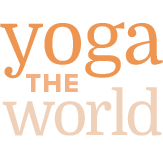Who’s the expert?
It is hard to watch what’s going on in the world right now, full stop.
And it is particularly hard to watch it and not think some kind of way about who we choose to put in charge, and why. What expertise we recognize as relevant. Whose experiences are seen as valid. What types of knowledge we hold as “good.”
A glaring example: political leaders are elected because of their ability to convince a large amount of people that they are smart or aggressive or somehow real. That they can do the job we elect them for. But the skillset required for convincing voters is manifestly different from the one it takes to actually lead. This same duality happens at smaller scales too: we hire folks in management positions who have substantive knowledge about the topic at hand but can’t relate to people (or vice versa). Or we elevate the business skills of someone who started out with resources and hoarded for themselves, over folks who build sustainable livelihoods for whole communities from nothing. (And of course, those routinely seen to have more “expertise” generally have a certain sex, race, caste, gender expression, religion, be able-bodied, etc.). We seem to not really know when to uplift minute skillsets, whether to prioritize salesmanship, and what values to evaluate either against.
I am not knocking specialized knowledge needed to solve complicated problems. Mechanics fixing cars, doctors opining on physical bodies, child psychologists explaining the effects of war and trauma on kids.
What I take issue with are hero worship and kneejerk adulation of skills that just don’t apply. The world is a mess, but no one person can “fix” it or even know what the right thing to do is. No amount of money, education, or social profile automatically equips anyone with better ethical standards than everyone else. That’s the thing with complex situations: there is no right answer, there are just values and principles and trying our best, together, to align. Decision-making in these cases require process and intuition, not top-down rule.
And there is the crux.
Intuition is about trusting the information of our bodies. If something doesn’t feel right, there is deep expertise in that: the expertise of generations settled in our bones. We all have different intuitions because our ancestors, and the knowledge they passed down, were different.
When it comes to solving our joint problems, we, all of us, are the experts we need.

